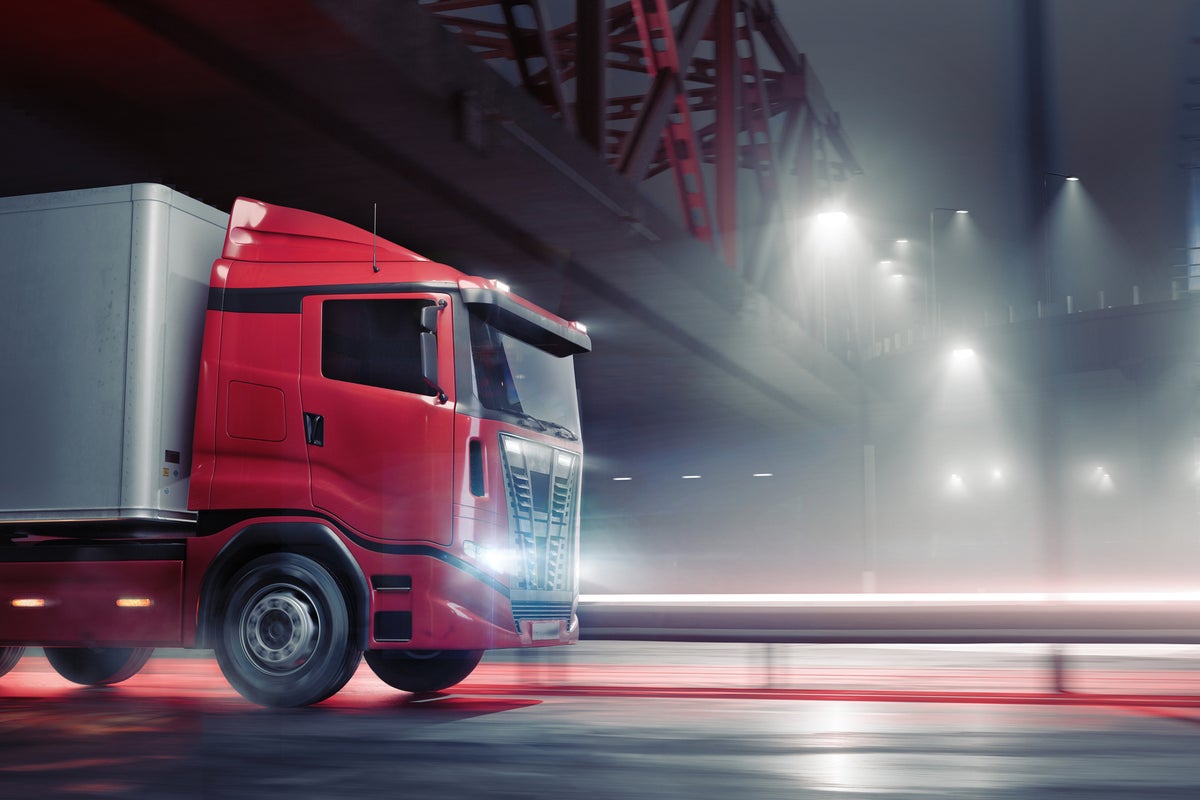Business
Why Investing in Trucks Beats Trains in Rapid Market Shifts

In a rapidly changing business environment, companies are increasingly challenged to adapt to new market conditions. An expert futurist has highlighted the advantages of investing in trucks over trains. The argument centers on the premise that while trains may offer efficiency, trucks provide the agility necessary to thrive in dynamic markets.
Understanding Market Dynamics
As businesses face high-frequency changes, the ability to pivot quickly becomes paramount. The expert emphasizes that adaptability is key to survival in uncertain economic climates. Companies that invest in flexible logistics solutions, such as trucking, are better positioned to respond to sudden shifts in demand or supply chain disruptions.
Trucks allow for more versatile transportation options compared to trains, which often operate on fixed schedules and routes. This flexibility not only reduces lead times but also enhances customer satisfaction. In contrast, businesses relying solely on trains may find themselves at a disadvantage when market conditions rapidly evolve.
The Cost of Inflexibility
Investing in optimized but inflexible systems can pose significant risks. For instance, during economic downturns or unexpected spikes in demand, trucks can adapt their routes and schedules more effectively than trains. The ability to reroute trucks within hours, rather than days, can be a decisive factor in maintaining operational continuity.
Data from the logistics industry indicates that companies utilizing truck transportation have reported greater overall efficiency, with a 20% reduction in delivery times compared to their rail counterparts. This efficiency translates to improved bottom lines, making trucks an attractive investment for businesses focused on growth.
Moreover, the total cost of ownership for trucks can be more favorable than that of trains. While initial investments in rail infrastructure can be substantial, trucks require lower upfront capital and offer more immediate returns. The flexibility in scaling operations with trucks allows companies to manage their logistics costs more effectively.
The discussion around transportation options also reflects broader trends in the global economy. As e-commerce continues to flourish, the demand for rapid delivery services is escalating. Businesses that can meet these demands through adaptable logistics solutions stand to gain a competitive edge.
In conclusion, the insights provided by the expert futurist suggest that investing in trucks rather than trains is a strategic move for businesses aiming to navigate the complexities of modern markets. Companies seeking to enhance their agility and responsiveness will benefit from prioritizing flexible transportation options that align with dynamic consumer needs.
-

 Health3 months ago
Health3 months agoNeurologist Warns Excessive Use of Supplements Can Harm Brain
-

 Health4 months ago
Health4 months agoFiona Phillips’ Husband Shares Heartfelt Update on Her Alzheimer’s Journey
-

 Science2 months ago
Science2 months agoBrian Cox Addresses Claims of Alien Probe in 3I/ATLAS Discovery
-

 Science2 months ago
Science2 months agoNASA Investigates Unusual Comet 3I/ATLAS; New Findings Emerge
-

 Science2 months ago
Science2 months agoScientists Examine 3I/ATLAS: Alien Artifact or Cosmic Oddity?
-

 Entertainment2 months ago
Entertainment2 months agoLewis Cope Addresses Accusations of Dance Training Advantage
-

 Entertainment5 months ago
Entertainment5 months agoKerry Katona Discusses Future Baby Plans and Brian McFadden’s Wedding
-

 Science2 months ago
Science2 months agoNASA Investigates Speedy Object 3I/ATLAS, Sparking Speculation
-

 Entertainment5 months ago
Entertainment5 months agoEmmerdale Faces Tension as Dylan and April’s Lives Hang in the Balance
-

 Entertainment2 days ago
Entertainment2 days agoAndrew Pierce Confirms Departure from ITV’s Good Morning Britain
-

 World3 months ago
World3 months agoCole Palmer’s Cryptic Message to Kobbie Mainoo Following Loan Talks
-

 World4 weeks ago
World4 weeks agoBailey and Rebecca Announce Heartbreaking Split After MAFS Reunion









